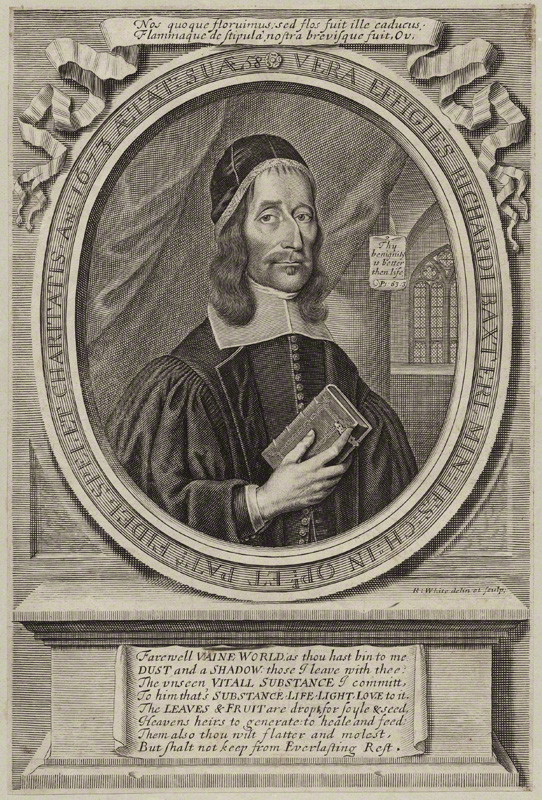Dissent and nonconformity are firmly in focus this week with the quatercentenary of the birth of the ejected minister and religious writer Richard Baxter (1615–1691) to be celebrated on Thursday and, in consequence, we would like to draw your attention to an important editorial initiative as well as to a related symposium and to the beginnings of Baxter in EMLO.

Richard Baxter, by Robert White. Published 1673. Line engraving, 25.5 by 17.2cm. (Source of image: National Portrait Gallery; NPG D29729)
Here in the UK, an international group of scholars at the Richard Baxter Correspondence Project are in the process of embarking upon their formidable task of preparing a comprehensive critical edition of Baxter’s extensive correspondence. This edition is to be published in nine volumes by Oxford University Press. Building on the detailed foundation laid in 1991 by N. H. Keeble and Geoffrey F. Nuttall in their Calendar of the Correspondence of Richard Baxter (which may be accessed, for those at a contributing institution, on Oxford Scholarly Editions Online [OSEO]), this edition will present for the first time the full text of every surviving letter within the corpus and the prefatory epistles to Baxter’s printed works, and will provide in addition extensive annotation and material description of the very manuscripts themselves. As this correspondence project begins, its elder sibling, the AHRC-funded Reliquiae Baxterianae Project, which is committed to providing — once again for the first time — a fully annotated and reliable scholarly edition of the complete text of Baxter’s 800-page folio Reliquiae Baxterianae (1696), is nearing completion. Both projects are to be congratulated and celebrated in the course of this Baxterian week.
EMLO is delighted to be working both with the Baxter Correspondence Project and with our trusted partners at OUP. To mark the beginnings of the Project’s work towards this monumental undertaking, we are publishing this week a fledgling catalogue, the introductory page for which will serve to update its followers with postings regarding progress and relevant items of interest. As the Baxter scholars proceed with their work in the months and years to come, a full epistolary calendar in EMLO will be pieced together. You will find just eight letters within the catalogue at present — a curious number, you may think — but these pioneer letters have been mounted as a foundation because they have been selected by Baxter editors Johanna Harris and Alison Searle to feature in a small online exhibition, created to celebrate the quatercentenary as well as to act as what we at EMLO hope will seve as the pilot in an ongoing series of correspondence-related exhibitions.
Concerning the week’s concrete celebrations, we would like to draw your immediate attention to a one-day symposium hosted by the Baxter Correspondence Project in collaboration with Dr Williams’s Library, the leading research library of English protestant nonconformity. In the course of Friday’s proceedings, our own Cultures of Knowledge Project Director, Professor Howard Hotson, will deliver a paper entitled ‘”What I had out of books”: Richard Baxter and “the general reformation of common learning”’, and members of the two Baxter projects will present their research and discuss work on the forthcoming edition. Of course, the Baxter archive at Dr Williams’s Library, testifying as it does to Baxter’s arguably unrivalled social, political, religious, and intellectual connections, is a truly invaluable resource and there could be no more fitting place in the world to stage this event. Should you happen to be in London on Friday, 13 November, and would like to attend, please be in touch with the organizers; further details of the day’s proceedings may be found here. And to conclude this run of celebrations, were you to tune into BBC Radio 3 this coming Sunday you would hear broadcast as part of the New Generation Thinkers series a programme, presented by Dr Thomas Charlton from the Reliquiae Baxterianae Project, on the life and ‘trouble-making’ thoughts of our ‘man of the week’. Dissenters enjoy!
